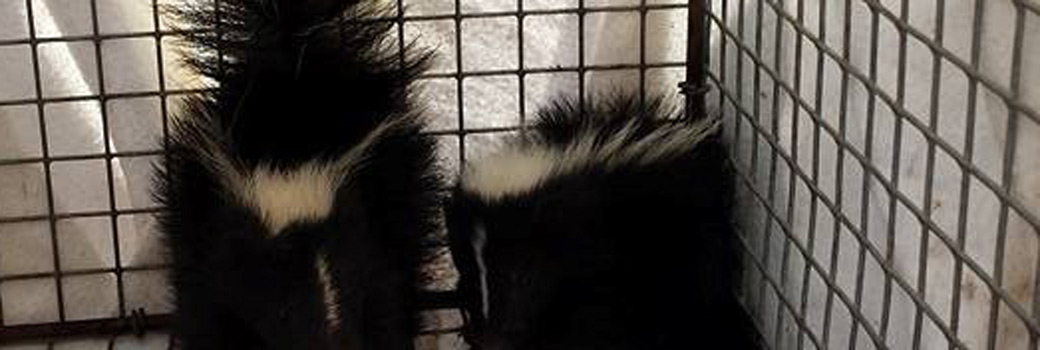- Los Angeles Educational Article of the Month - Is Skunk feces dangerous to touch or breathe ?
Is Skunk feces dangerous to touch or breathe ?
Is Skunk feces dangerous to touch or breathe ?
Skunk feces are believed to contain harmful microbes, most especially bacteria and viruses and for this
reason, it can be very dangerous to touch or breathe substances from such fecal materials. Dry skunk feces
may break up into particles and some of the particles are carried up by dusts and wind, and can be inhaled
when you are too close to a California skunk’s den.

Skunks are usually recognized by their white and black colour combinations, and aside the fact that they
can shoot some foul smelling liquid out of their hind region, when threatened, their fecal materials can be
a source of several infections to both humans and animals. Skunks have become nuisance in many regions of
the world, they have the ability to dig under porches and decks, thus they can defecate under such places.
Skunk feces can be identified by their similar features to cats’ feces, and they are usually in tubular
shape and found close to skunk nests. The California feces are also characterized by blunt ends and smooth surfaces,
and they break up when prodded with an object.
Skunk feces will normally contain parts of insects that have not been digested; they also contain un-digested
seeds, fur, feathers berries, and grass. There are so many dangers inherent in the feces of Los Angeles skunks, such materials
do carry some roundworms and tapeworms that can be transported into animals and humans when the animal or human ingest
contaminated water or food. The worms normally lay eggs in the skunk’s intestine and these are passed out through the feces.
When other animals lick the coats of California skunks or feed on their carcasses, they may ingest eggs laid by worms and when the eggs
are finally hatched, they release parasites into their new hosts.
Some of the diseases you may contact by breathing or touching substances from skunks’ feces include; Listeriosis, Baylisascaris
Columnaris, Canine distemper ( discomfort to the canine structures of dogs and cats), Hepatitis( damages to the liver and kidney
of humans and animals), Equine Protozoa Myeloencephalitis( causes nervous damage to animals and humans), Panleukopenia virus (
disrupts digestive systems of animals such as cats, causing decrease in white blood cells and loss of appetite), and many more.
It is important to avoid contact with Los Angeles skunk feces or wear protective hand and face covers when removing skunks and their fecal
materials from decks, porches, and yards.
To learn more about our services, visit the Los Angeles wildlife removal home page.

